Books
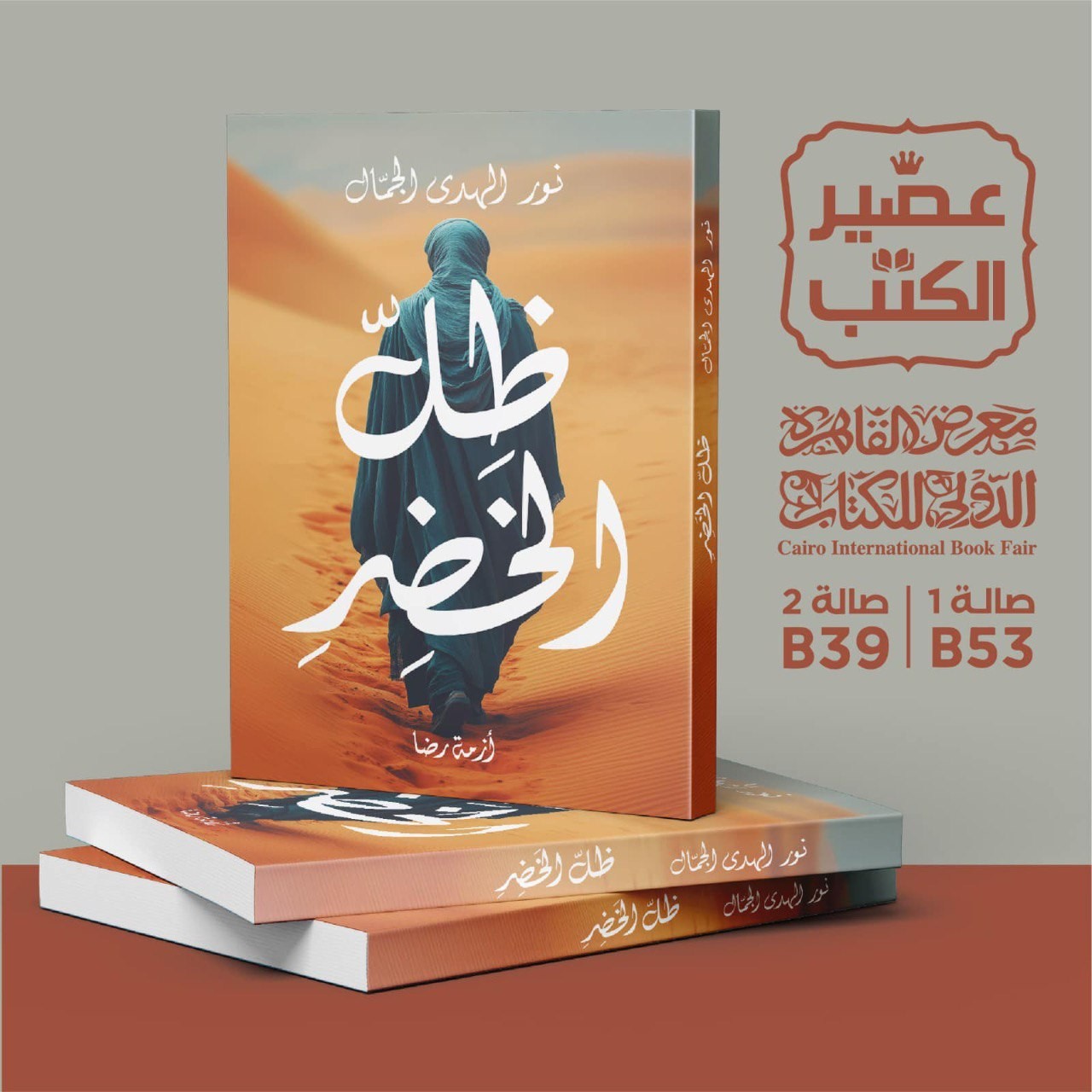
Sale 50%
The Shadow of Al-Khidr
Price: 200.00 EGP 400.00EGP
To those who have become captives under the weight of the "Crisis of Acceptance", those who sleep in contentment with God’s decree yet wake up in distress and pain from the severity of the trials that have afflicted and wounded them—caught between acceptance and despair, they endure the torment.
To those who stand firm once, only to fall a thousand times within a single hour.
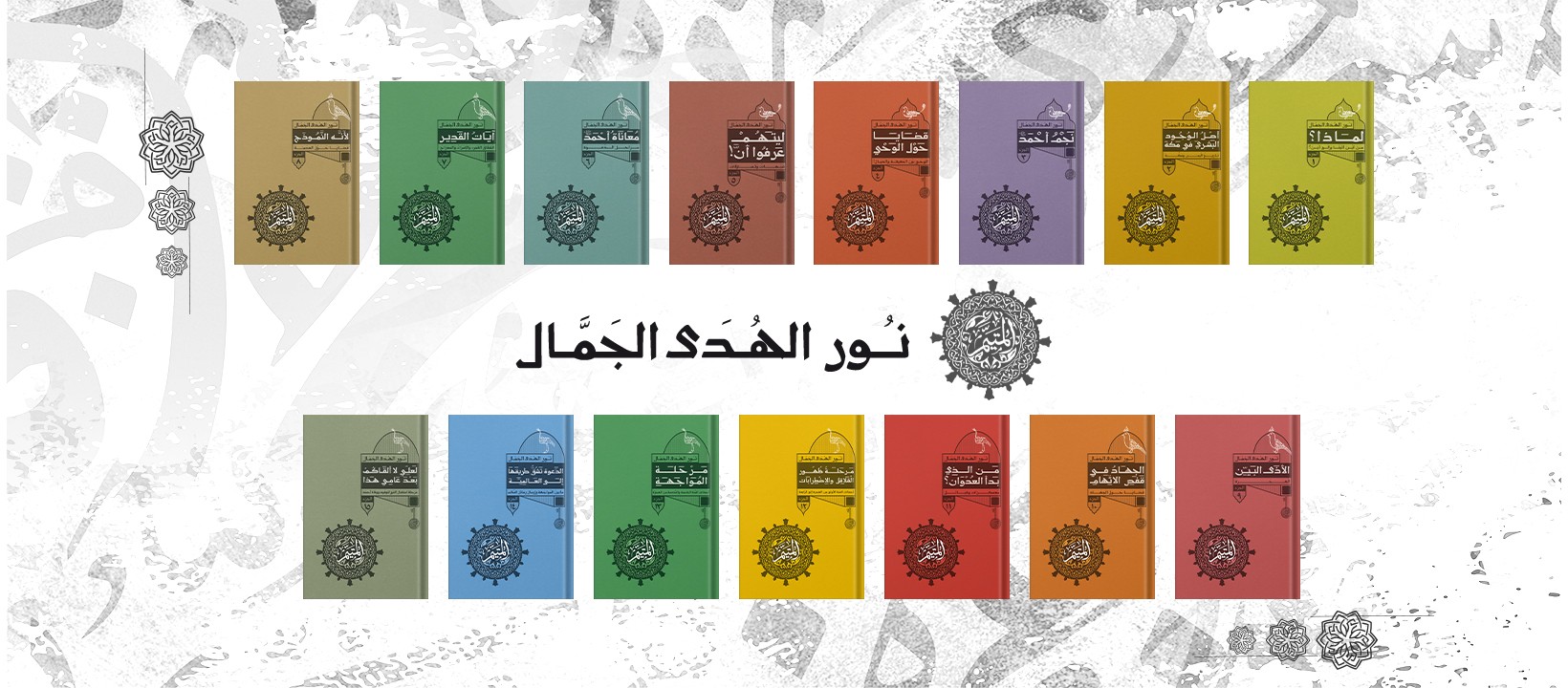
Sale 40%
The complete encyclopedia
Price: 1,350.00 EGP 2250.00EGP
- This composite box contains:
- Part One: "Al-Mutayyam 1 - Why, Where From, and To Where?"
- Part Two: "Al-Mutayyam 2 - The Origin of Human Existence in Mecca"
- Part Three: "Al-Mutayyam 3 - The Star of Ahmad"
- Part Four: "Al-Mutayyam 4 - Issues Around Revelation"
- Part Five: "Al-Mutayyam 5 - If Only They Knew!"
- Part Six: "Al-Mutayyam 6 - The Sufferin... Read more
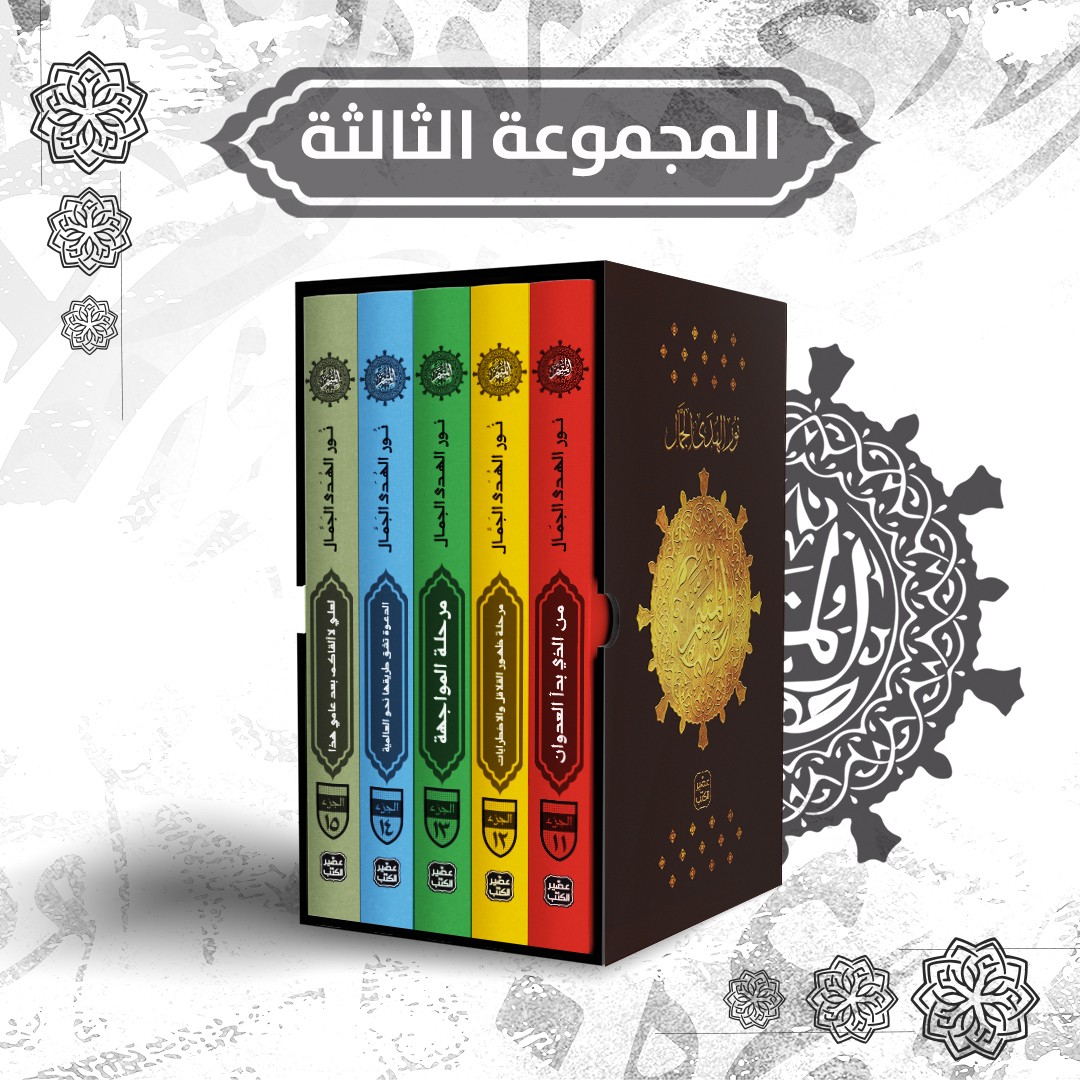
Sale 10%
The third box
This composite box contains:
Part Eleven: "Al-Mutayyam 11 - Who Started the Aggression?" Part Twelve: "Al-Mutayyam 12 - The Stage of Emergence of Turmoil and Disturbances" Part Thirteen: "Al-Mutayyam 13 - The Stage of Confrontation" Part Fourteen: "Al-Mutayyam 14 - The Call Makes Its Way to Globalization" Part Fifteen: "Al-Mutayyam 15 - Perhaps I Will Not Meet You After This Year"
For more content from these five parts inside the composite box, please return to the book pages, which you can quickly access from other works by the author on this website.
Price: 675.00EGP 750.00EGP
Read more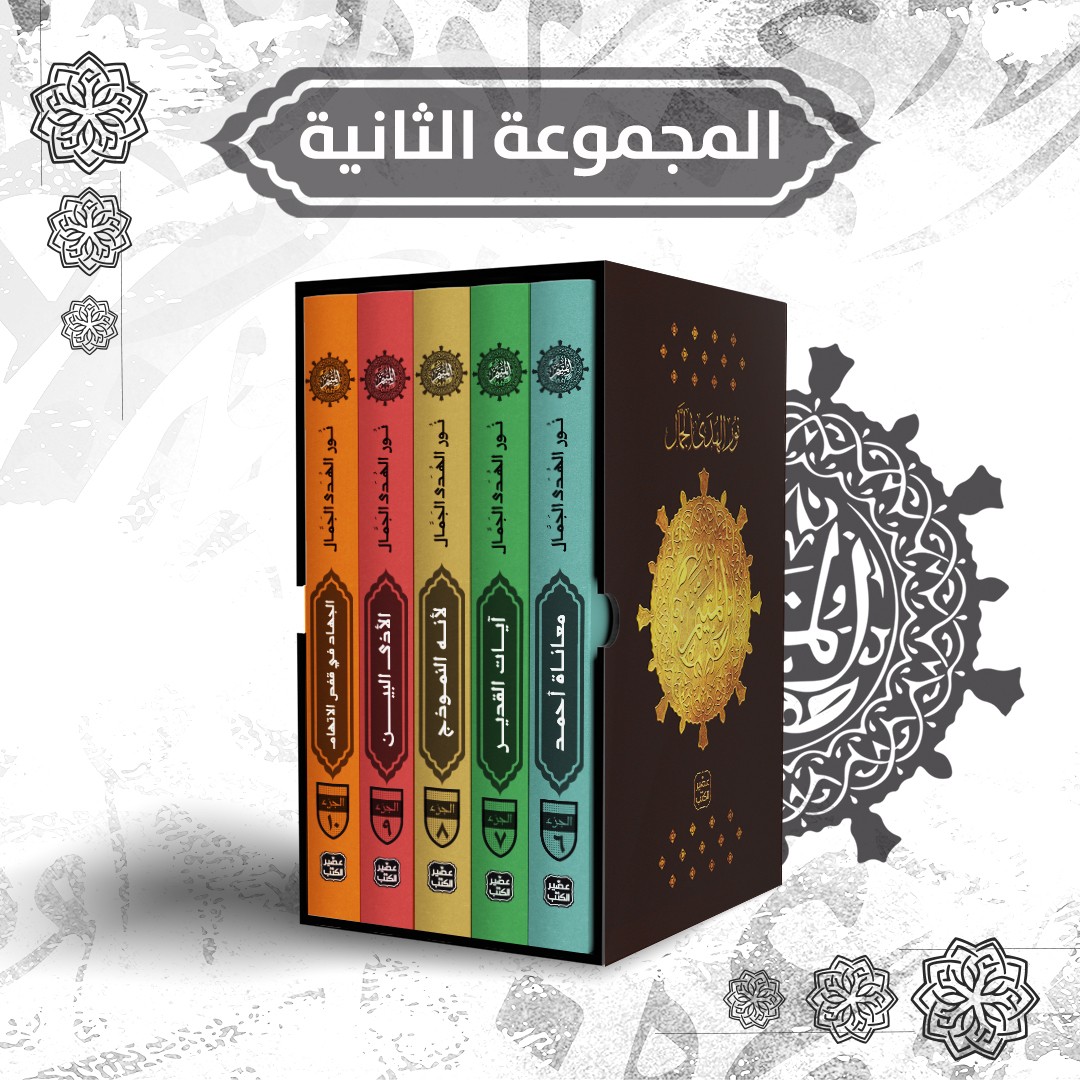
Sale 20%
The second box
This composite box contains:
Part Six: "Al-Mutayyam 6 - The Suffering of Ahmad" Part Seven: "Al-Mutayyam 7 - The Verses of Al-Qadir" Part Eight: "Al-Mutayyam 8 - Because He is the Model" Part Nine: "Al-Mutayyam 9 - The Clear Harm" Part Ten: "Al-Mutayyam 10 - Jihad in the Cage of Accusation"
For more content from these five parts inside the composite box, please return to the book pages, which you can quickly access from other works by the author on this website.
Price: 600.00EGP 750.00EGP
Read more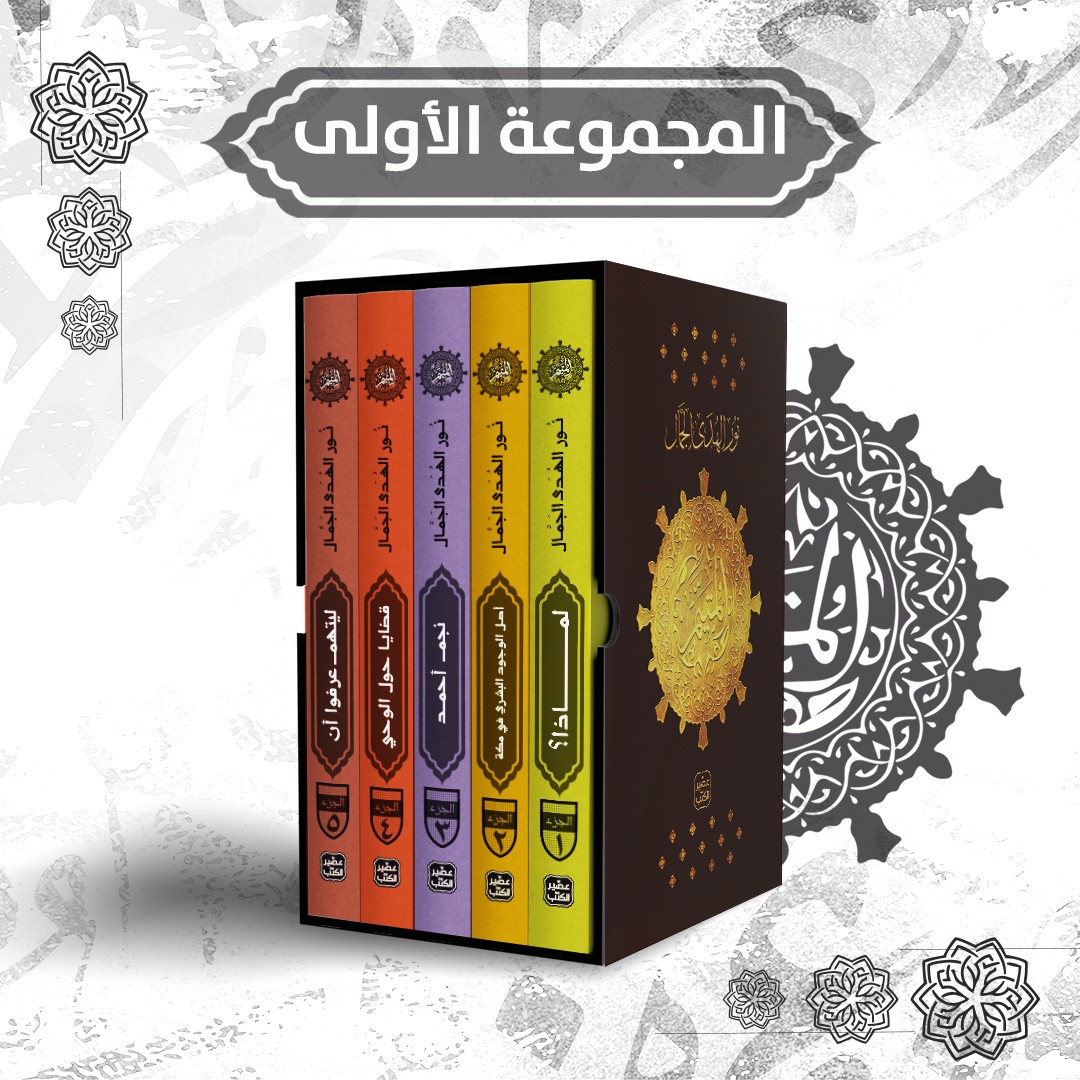
Sale 20%
First box
This composite box contains:
Part One: "Al-Mutayyam 1 - Why, Where From, and To Where?" Part Two: "Al-Mutayyam 2 - The Origin of Human Existence in Mecca" Part Three: "Al-Mutayyam 3 - The Star of Ahmad" Part Four: "Al-Mutayyam 4 - Issues Around Revelation" Part Five: "Al-Mutayyam 5 - If Only They Knew!"
For more content from the five parts inside the composite box, please return to the book pages, which you can quickly access from other works by the author on this website.
Price: 600.00EGP 750.00EGP
Read more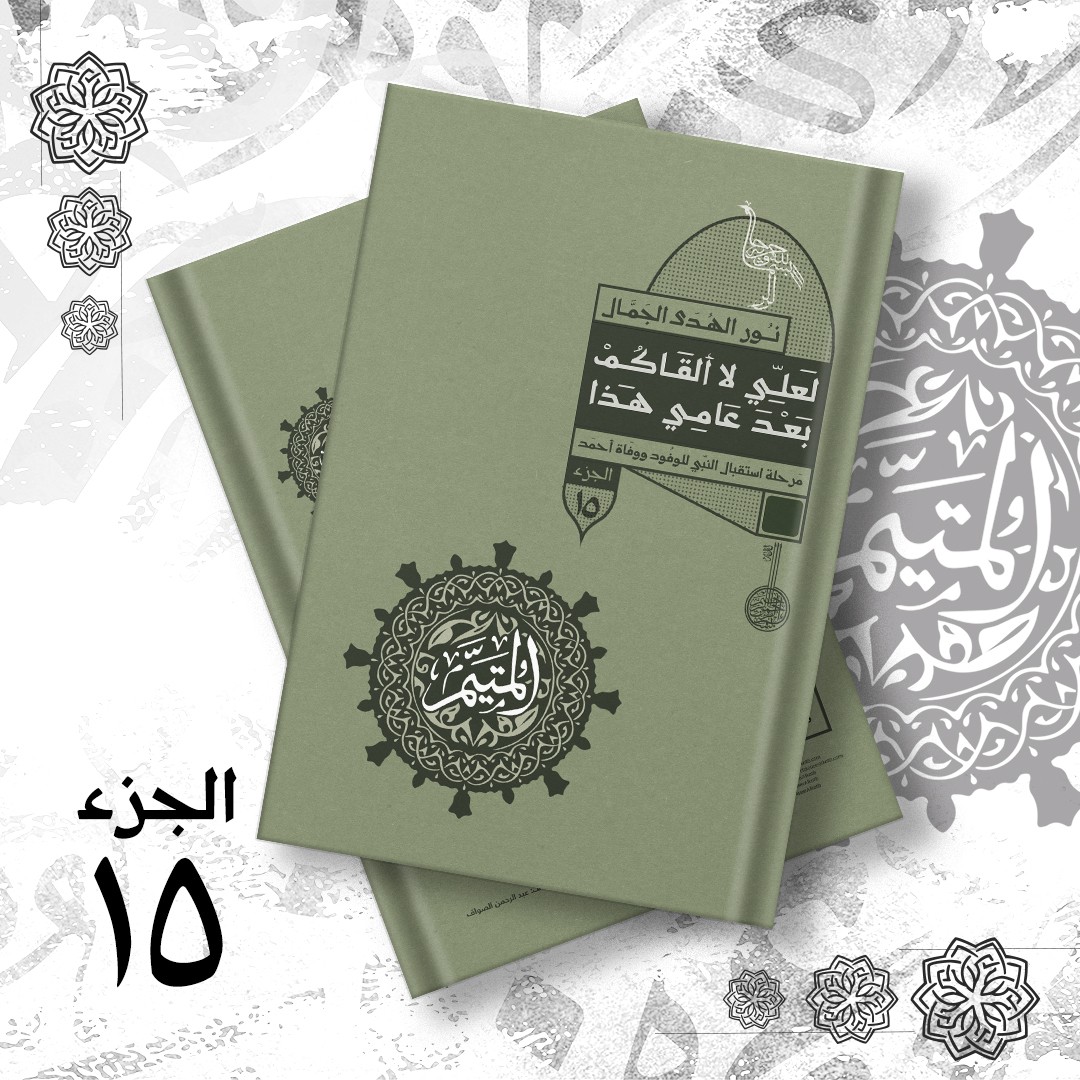
Sale 20%
Al-Mutayam 15 - Perhaps I will not meet you after this year
We talked in the fourteenth part about the events of the eighth year of the Hijra, starting from the expedition of Ghālib ibn ʿAbdullāh al-Laythī to Banī al-Mulawwah in the month of Ṣafar, until the expedition of Ṭufayl ibn ʿAmr al-Dawsī to demolish the idol of Dhū al-Kaffayn. This is the fifteenth part of the book "Al-Mutayyam," in which we discuss what happened in the ninth year of the Hijra, starting from the events beginning with the expedition of ʿUyaynah ibn Ḥiṣn to Banī Tamīm in the month of Muḥarram of that year, until the stage of receiving delegations by the Prophet ﷺ.
After the conquest of Mecca in the eighth year of the Hijra, the end of the expedition of Ṭabūk, and the fall of the last strongholds of resistance to the Islamic state, delegations came to the Prophet ﷺ from every direction, desiring to enter Islam. The number of these delegations in that year exceeded sixty, as historical sources have mentioned. We will briefly mention the most important of these delegations, starting with the delegation of Ṭaqīf in the month of Ramaḍān of the ninth year of the Prophetic Hijra, until the delegation of the Ḥimyarites from the people of Yemen at the end of this year.
Then we conclude our journey about the biography of our Prophet Muhammad ﷺ, living through the events of the tenth and eleventh years of the Prophet's Hijra, starting from the expedition of Khālid ibn al-Walīd to Banī al-Ḥārith ibn Kaʿb in Rabīʿ al-Awwal of the tenth year of the Hijra, until the illness of the Prophet ﷺ and his death on the second Monday of Rabīʿ al-Awwal in the eleventh year of the Hijra. He lived for sixty-three years, and what followed of events, such as those that occurred in the Saqīfah of Banī Sāʿidah until the allegiance was given to Abū Bakr al-Ṣiddīq as the first caliph of the Messenger of Allah ﷺ, then the confrontation of Abū Bakr al-Ṣiddīq with the fitnahs (tribulations) that followed the death of the Prophet ﷺ, like the refusal of paying zakāt and the apostates.
Through this journey, we have tried to present the biography of our Prophet Muhammad ﷺ in a simple and comprehensive style that reflects the reality of this great religion and highlights the noble purpose of the mission of the seal of the prophets, our Prophet Muhammad ibn ʿAbdullāh - may the blessings and peace of Allah be upon him and his family and companions - asking Allah the Almighty to bless this work and make it beneficial for the people and the countries.
Price: 236.00EGP 295.00EGP
Read more
Sale 20%
Al-Mutayam 14 - The call is making its way to the world
In the thirteenth part, we concluded with a discussion on the phase of sending messages to the kings, where messengers carrying the glad tidings and the light of guidance were dispatched with sealed letters from the Prophet Muhammad (peace be upon him) to various rulers. We began with the letter of the Prophet (pbuh) to Heraclius, the Emperor of the Romans, followed by his letter to Najashi, the king of Abyssinia, then his letter to Muqawqis, the ruler of Egypt, and finally his letter to Kisra, the King of Persia.
Now, in the fourteenth part, we delve into the events of the seventh year of the Prophet's migration, starting from the Expedition of Thaniyat al-Wada (or the Expedition of Dhat al-Riqa) which took place in the month of Muharram, until the expedition of Ibn Abi al-Awja al-Salami to the Banu Sulaym tribe in the month of Dhul-Hijjah. Then, we continue with the events of the eighth year of the Prophet's migration to Medina, beginning with the expedition of Ghalib ibn Abdullah al-Laithi to the Banu Mulawwah tribe in the month of Safar, until the expedition of Tufayl ibn Amr al-Dawsi to destroy the idol of Dhul-Kaffayn.
Price: 184.00EGP 230.00EGP
Read more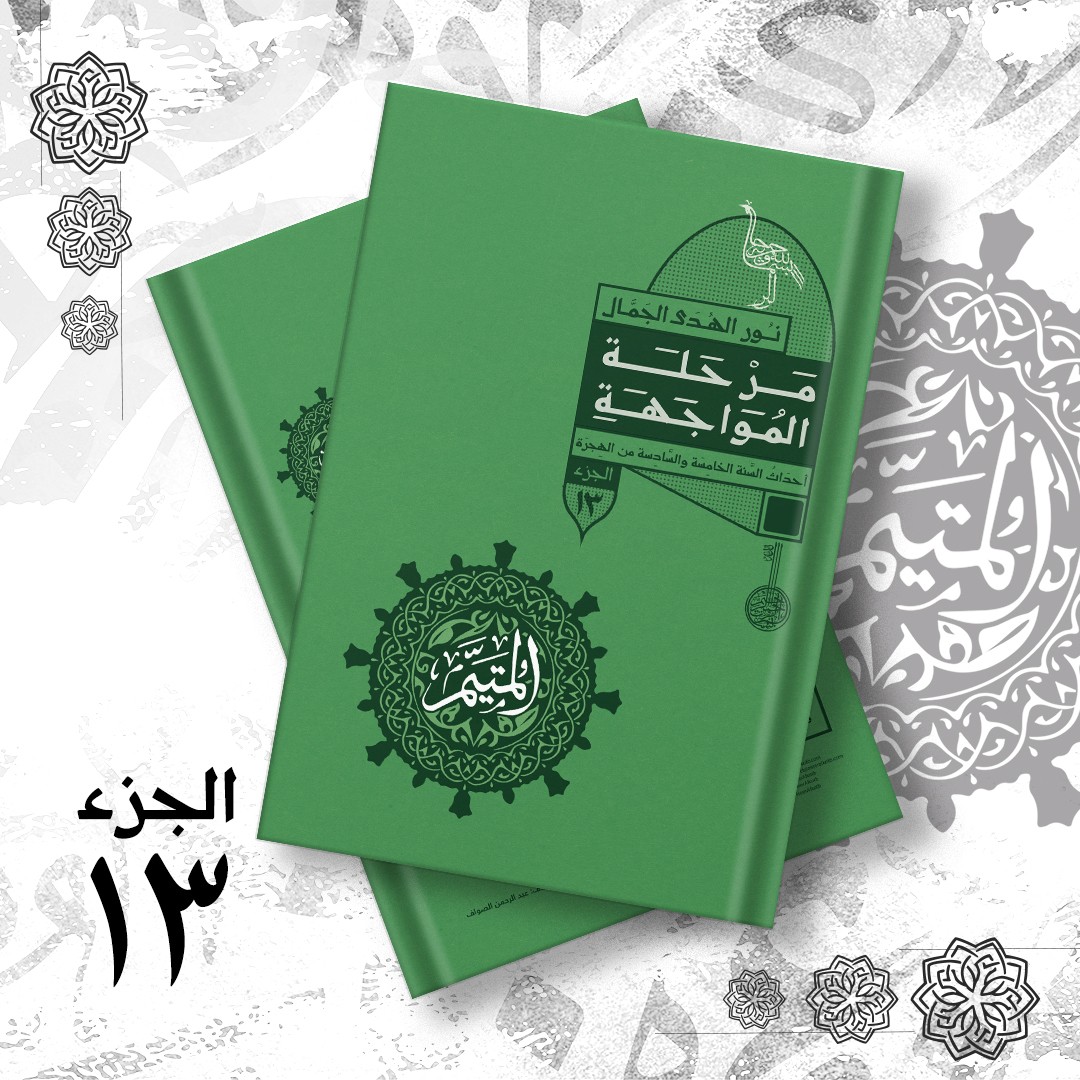
Sale 20%
Al-Mutayam 13 - The confrontation stage
In Part Twelve, we discussed the events of the third and fourth years of the blessed Hijrah, starting from the expedition of Dhu Amarr in the month of Rabi al-Awwal of the third year, until the preemptive expedition of Badr, which took place in the month of Dhu al-Qi'dah of the fourth year of the Hijrah. Now, in Part Thirteen of the book "Al-Mutayyam," we will continue our analysis of the events that occurred after the Prophet's migration to Madinah.
In this part, we will cover the events of the fifth year of the Hijrah, beginning with the expedition of Dumat al-Jandal, which took place in the month of Rabi al-Awwal of that year, and extending to the expedition of Abdullah ibn Atik to assassinate Abu Rafi' Salam ibn Abi al-Huqaiq the Jew, which occurred in the month of Dhu al-Hijjah.
Furthermore, we will delve into the events of the sixth year of the Hijrah, starting from the expedition of Muhammad ibn Maslamah to Al-Qurta'ah in the month of Muharram of that year, and moving forward to the stage of sending messages to the kings. These messages were carried by messengers who bore glad tidings and the lights of guidance, beginning with the letter of the Prophet Muhammad (peace be upon him) to Heraclius, the Emperor of the Romans. The messenger who carried this letter was Dihyah al-Kalbi. We will also discuss the Prophet's letter to Najashi, the King of Abyssinia, which was conveyed by Amr ibn Umayyah al-Damri. Additionally, we will explore the letter sent by the Prophet Muhammad (peace be upon him) to Muqawqis, the ruler of Egypt, which was delivered by Hatib ibn Abi Balta'ah.
Price: 160.00EGP 200.00EGP
Read more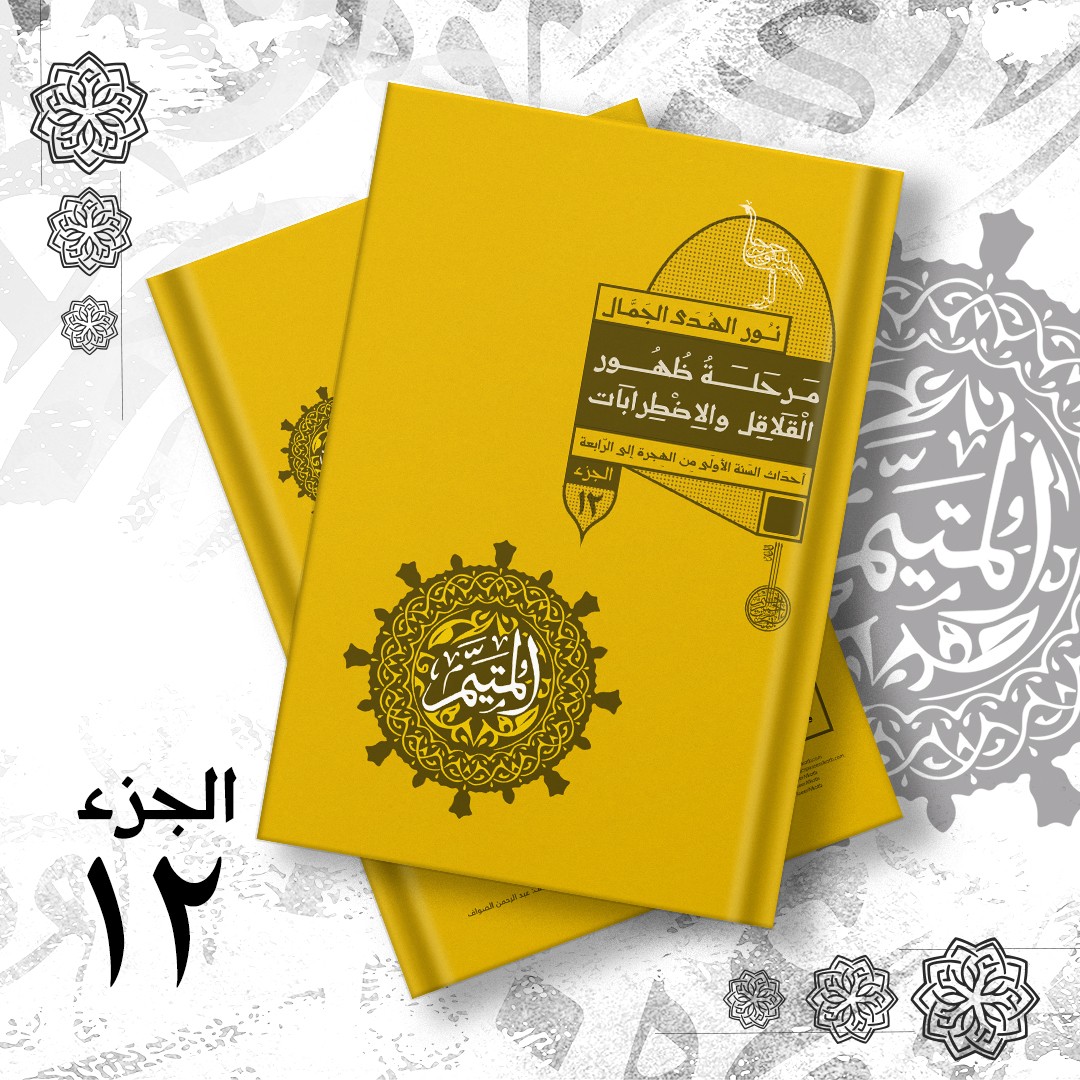
Sale 20%
Al-Mutayam 12 - The stage of the emergence of unrest and disturbances
In the previous Part (Part Eleven), we presented a concise analytical overview of the confrontations (battles and raids) that took place between the Islamic camp and other camps that insisted on confrontation, refusing to live under the peace advocated by the religion of Islam for all humanity. We elucidated how the conflict began, the motivations of each camp involved, and the strategies adopted by the Prophet Muhammad (peace be upon him) against each of these camps.
In this Part Twelve and the subsequent ones, we will narrate the events that occurred after the blessed Hijrah (emigration) of the Prophet Muhammad (peace be upon him), and how the series of confrontations began between him and those who stood against this call, which sought nothing but the happiness of all beings in this world and the Hereafter. We will analyze these confrontations in detail, explaining their causes and outcomes. We will start this part by recounting the events of the first and second years of the Prophet's Hijrah, beginning with the expedition of Hamzah ibn Abd al-Muttalib to the coast - the first confrontation that occurred in the first Hijri year - until the expedition of Sawiq, which took place in the month of Dhu al-Hijjah of the second year of the Prophet's Hijrah. Then, we will continue the narrative to describe the events that unfolded after the Prophet's Hijrah to the illuminated city of Madinah, covering the events of the third and fourth years of the blessed Hijrah, starting from the expedition of Thi Amr in the month of Rabi al-Awwal of the third year, to the Battle of Badr, which took place in the month of Dhu al-Qi'dah of the fourth year of the Hijrah.
Price: 160.00EGP 200.00EGP
Read more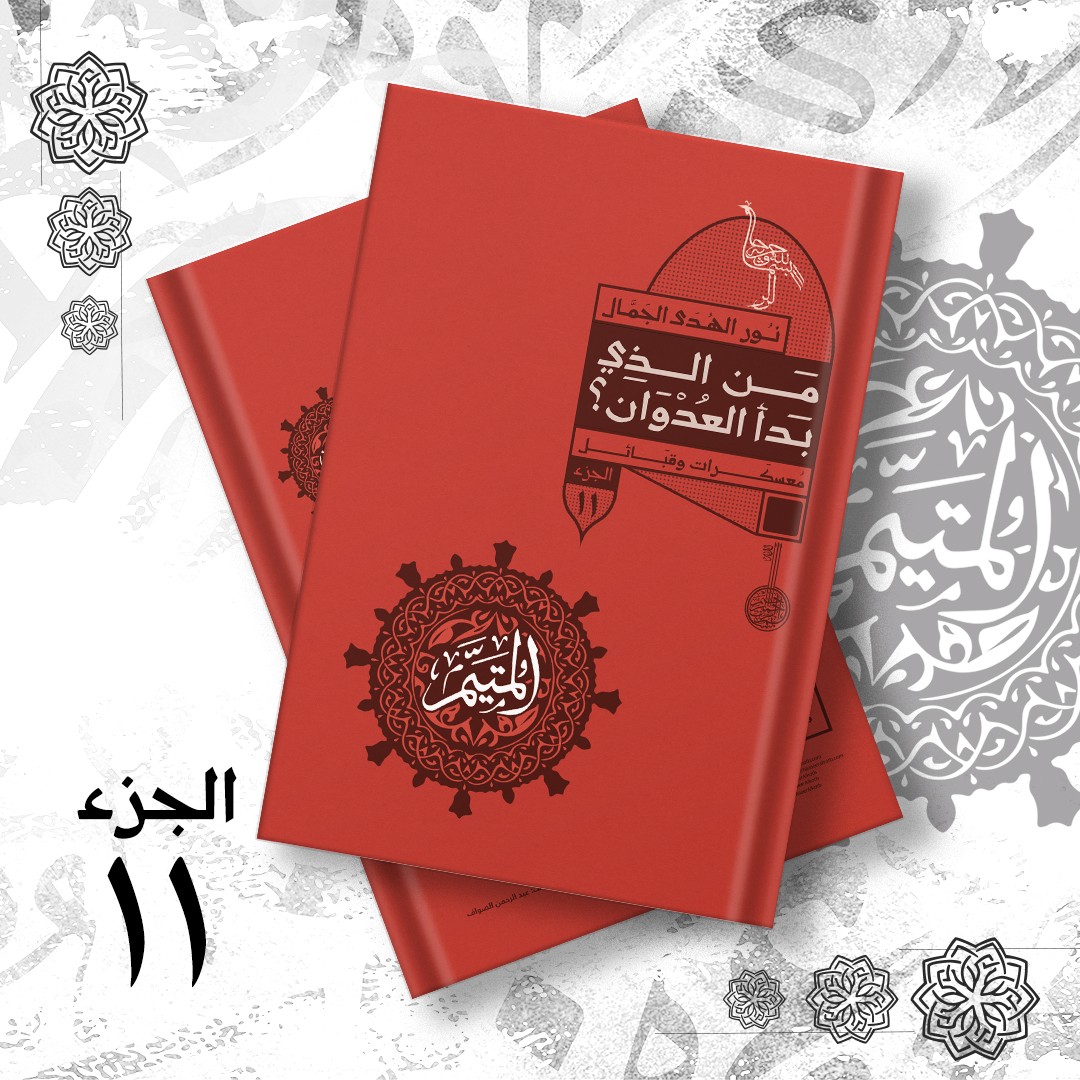
Sale 20%
Al-Mutayam 11 - Who started the aggression?
In Part Ten, we discussed the issue of slavery in Islam and how Islam abolished this system with a decisive methodology. Then, we addressed the issue of jizyah, the tax imposed by Islam on non-Muslims, a matter that has been misunderstood by some, who failed to grasp the objective of Islam in instituting it. Finally, we concluded the part by discussing the rights of dhimmis (non-Muslim subjects) in Islamic law.
Now, before you is Part Eleven, where we will provide a brief analytical overview of the confrontations (battles and raids) that occurred between the Islamic camp and other camps that attempted to extinguish the light that Allah commanded to spread in the universe. Through this overview, we will elucidate how the conflict began, who initiated it, and the motivations of each camp involved. We will also discuss the types of confrontations undertaken by the Prophet Muhammad (peace be upon him) against these hostile camps, and what was the purpose of the Messenger of Allah (peace be upon him) in each type of confrontation.
Price: 100.00EGP 125.00EGP
Read more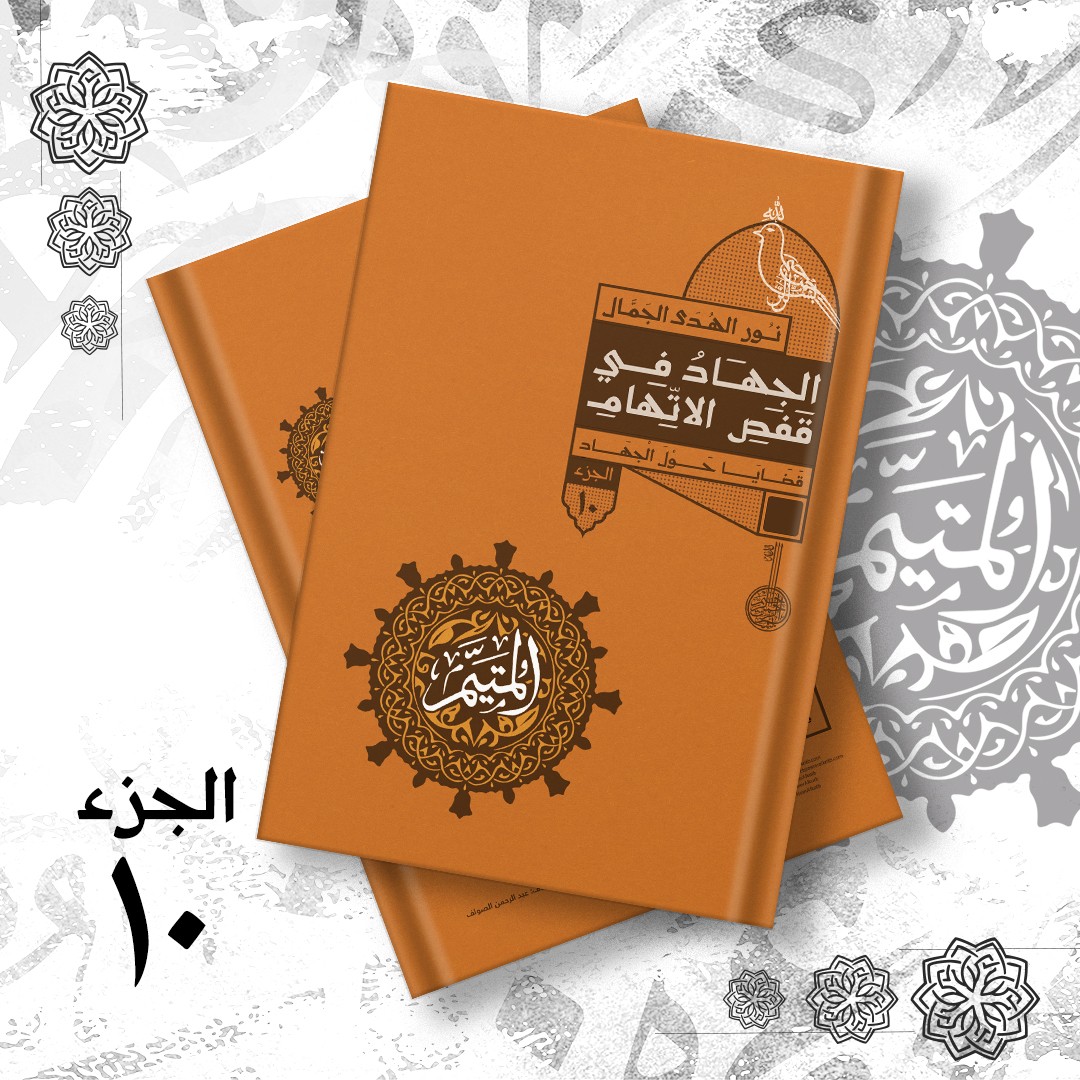
Sale 20%
Al-Mutayam 10 - Jihad in the dock
In Part Nine of the book "Al-Mutayyam," we discussed the principles established by the Prophet Muhammad (peace be upon him) to lay the foundations of the new community in the illuminated city of Medina. This included the construction of the mosque, the brotherhood between the emigrants and the Helpers (Ansar), and the signing of a covenant between him and all factions residing in Medina to ensure peaceful coexistence for all.
Now, before you is Part Ten, where we will delve into one of the most critical issues that many people misunderstand, and around which many doubts are raised by skeptics and enemies of this religion. This issue is the concept of jihad and its philosophy in Islam. We will begin our discussion of this topic in this part by talking about the manifestations of peace in the religion of Islam, and we will respond to a common misconception that Islam spread by the sword.
Then, we will conclude this part by answering two important questions related to this issue: First: What does it mean when the Prophet (peace be upon him) said, "I have been commanded to fight the people"? Second: Did the Messenger of Allah (peace be upon him) personally kill anyone with his own hands? We will then discuss the concept of jihad in Islamic law and other religions, the etiquette of jihad in Islam, the guidance of the Prophet (peace be upon him) before and during battle, and how he treated those who were captured during combat.
Finally, we will discuss how Islam dealt with the issue of slavery and how it abolished this system with a decisive methodology. We will then address the issue of jizyah, which Islam imposed on non-Muslims, a matter that has been misunderstood by some who failed to grasp the objective of Islam in instituting it. Finally, we will conclude this part by discussing the rights of dhimmis (non-Muslim subjects) in Islamic law.
Price: 236.00EGP 295.00EGP
Read more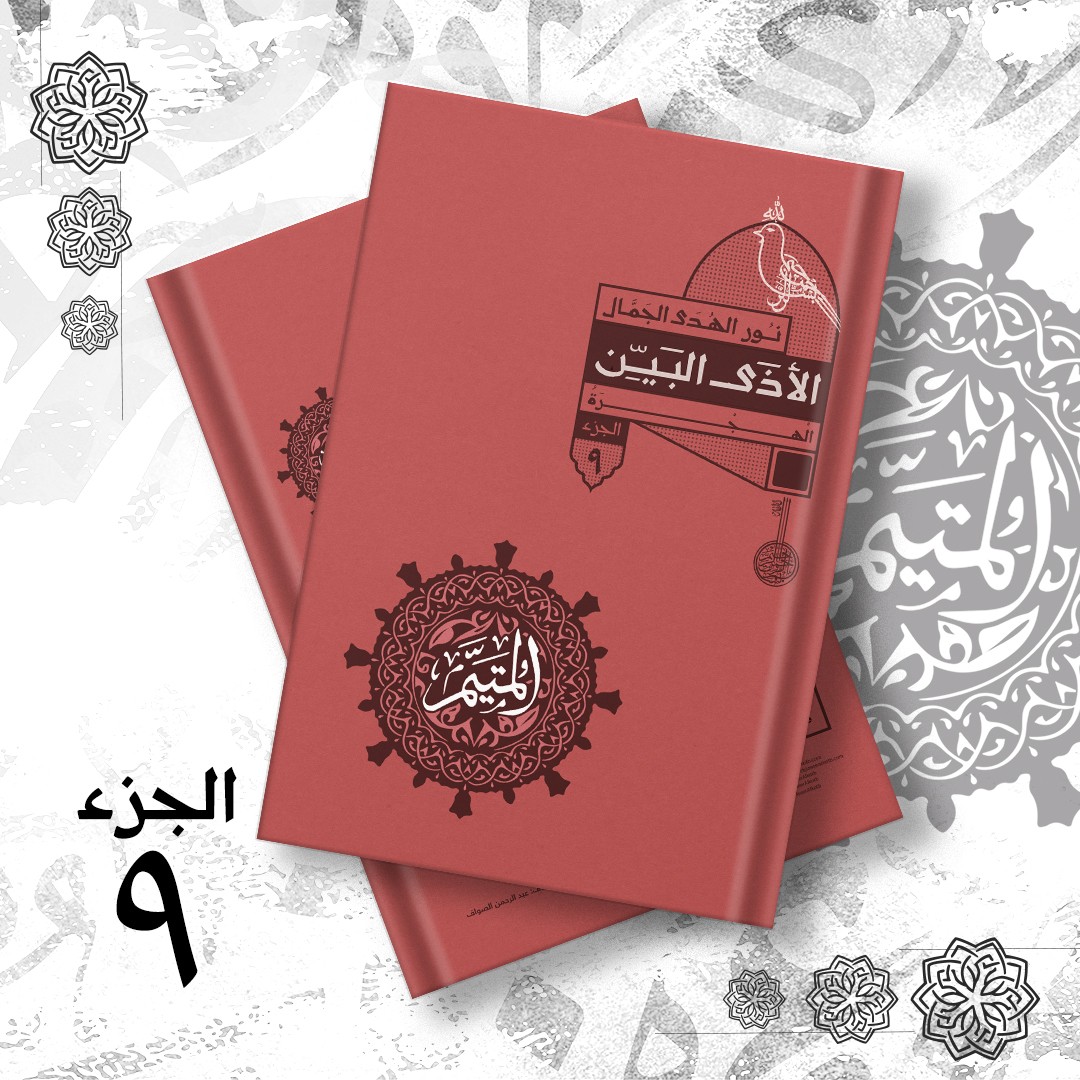
Sale 20%
Al-Mutayam 9 - Clear harm
We concluded the discussion in the previous part (Part Eight) about the issue of infallibility and responded to many of the doubts surrounding it. In this part (Part Nine), we will begin our discussion about the blessed Prophet's migration to the illuminated city of Medina. We will divide this part into two chapters:
- In the first chapter, we will examine the reasons and causes for the Prophet's migration, and the consequences of Quraysh's hostility towards him, their surveillance of his blessed call, and their attempts to incite trouble for anyone who responded to his invitation, until Allah granted him permission to migrate to Medina.
- Then, in the second chapter, we will delve into the events of this blessed migration and the miracles that occurred during this journey.
Finally, we will discuss the Prophet's arrival in Medina and the foundations he laid to establish the new community, including the construction of the mosque, the brotherhood between the emigrants and the Helpers (Ansar), and the signing of a covenant between him and all factions residing in Medina to ensure peaceful coexistence for all.
Price: 132.00EGP 165.00EGP
Read more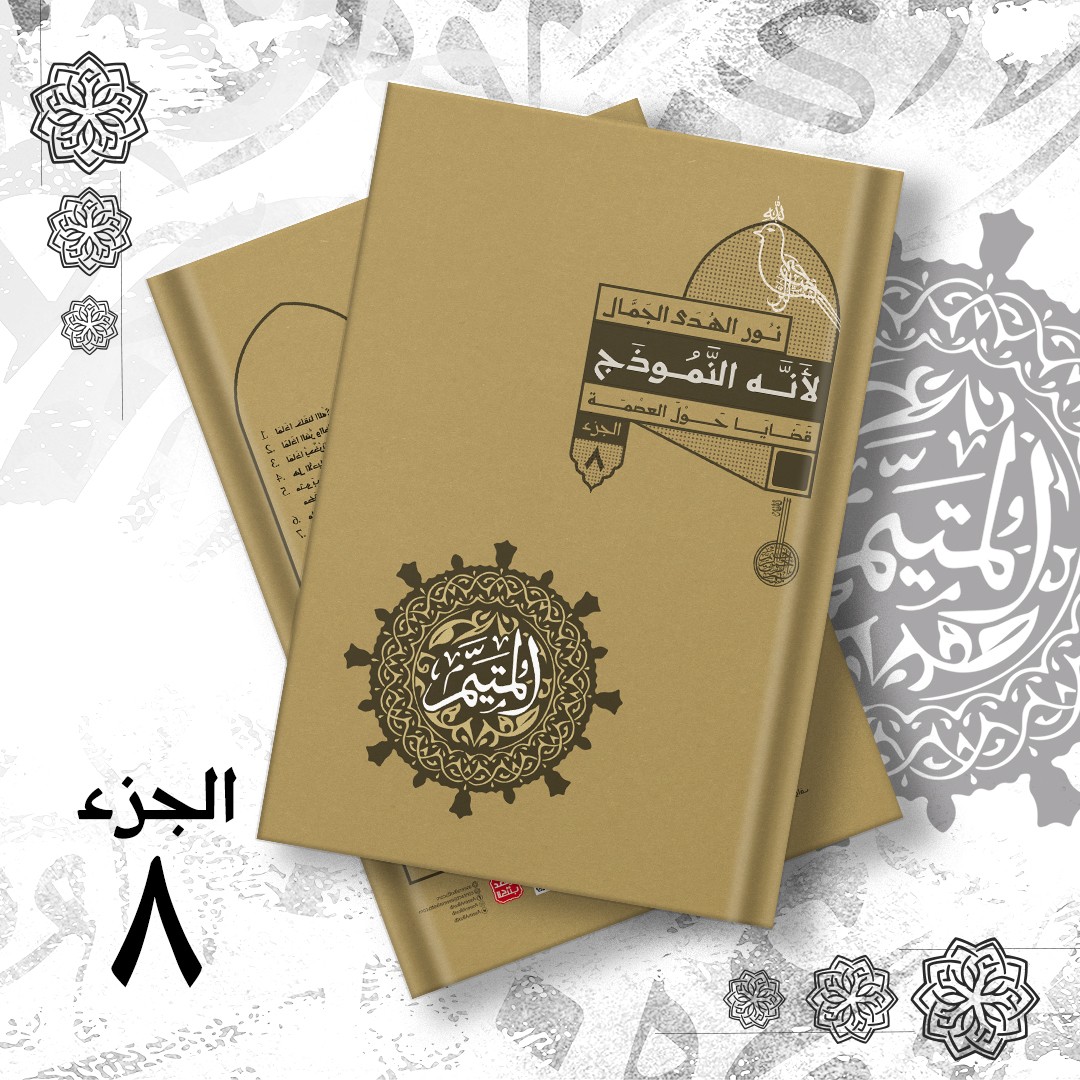
Sale 20%
Al-Mutayam 8 - Because he is the model
In the previous part (Part Seven), we discussed the journey of Isra and Miraj, addressing many questions surrounding this blessed journey. We also talked about the first and second pledges of Al-Aqabah and the consequences of these pledges. We concluded the part by discussing Quraysh's desperate attempt to eliminate the Prophet Muhammad ﷺ and how Allah protected him from their schemes.
In this eighth part, we will delve into one of the most crucial issues related to the person of the Messenger of Allah ﷺ, namely the issue of infallibility (Isma). This issue has been a subject of much debate, with detractors attempting to undermine the foundations of this great religion. What is the reality of infallibility? If Allah has indeed protected His Prophet ﷺ, then why did the Arab polytheists persecute and harm him and his followers? Does Allah's statement in the Quran, "And He found you lost and guided [you]," and also "And before that you were among those astray" (Quran 93:7), negate his infallibility? Did the Prophet ﷺ fall into temptation? Did he have any faults?
After that, we will discuss how Allah made His Messenger ﷺ the perfect role model to be followed. We will then address two of the most important issues related to the question of the Prophet's infallibility:
- Did the Prophet ﷺ experience magic?
- Does the Prophet's forgetfulness in certain matters negate Allah's protection for him?
Finally, we will conclude this part by discussing the reality of the Prophet's death due to consuming poisoned meat.
Price: 132.00EGP 165.00EGP
Read more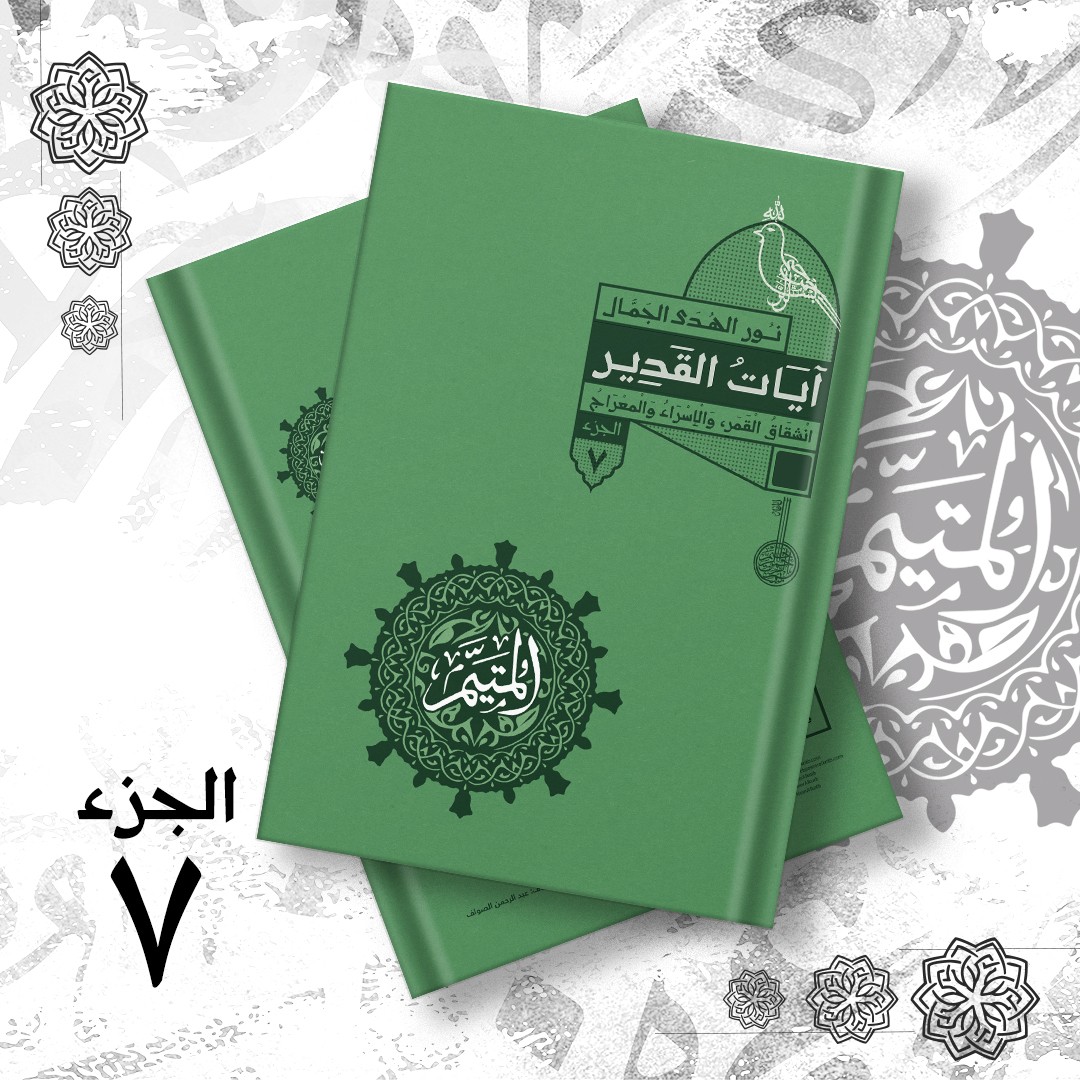
Sale 20%
Al-Mutayam 7 - The verses of the Almighty
In the previous part (Part Six), we discussed a stage from the early phases of the Islamic call, namely the stage of persecution. We covered this stage in twenty-six snapshots, each depicting the extent of the physical and psychological harm endured by the Prophet Muhammad ﷺ and his companions. Despite all this, they were not deterred from their religion, nor were they diverted from their creed, the light of which had settled firmly in their hearts.
Now, in this seventh part, we will begin by discussing one of the miracles that Allah supported His Prophet ﷺ with, namely the miracle of the splitting of the moon. This great miracle, which is unparalleled in the miracles of the prophets, served as a clear sign of the truth of Prophet Muhammad's message.
After that, we will talk about the migration of some companions to Abyssinia (Ethiopia), examining the reasons for this migration in both its first and second phases. We will explore why the Prophet ﷺ chose Abyssinia and the reaction of the Quraysh to this migration, as well as how the companions coped with this difficult phase in a foreign land.
Following that, we will discuss a stage that was one of the most challenging periods faced by the Prophet ﷺ and his companions, namely the period of the harsh siege. Quraysh besieged the Messenger of Allah ﷺ and his followers in the Shi'b Abi Talib for three years, drafting a treaty known as the "Pact of Boycott," which they hung inside the Kaaba as a guarantee of its implementation.
This siege was not lifted until two tragic events occurred, causing profound sadness to the Prophet ﷺ: the death of his uncle Abu Talib and the death of his wife Khadijah, the Mother of the Believers.
We will then discuss the Prophet's journey to Taif to call its people to Allah, the resistance he faced from them, and the outcome of this encounter.
Finally, we will delve into the Isra and Miraj, a journey surrounded by much discussion: Was it a waking experience or a dream? Did it involve the soul only, or was it a physical and spiritual journey combined? Why did the Isra precede the Miraj? These are some of the questions we will address in this part.
Afterward, we will discuss the two pledges of Al-Aqabah, their significance, and the implications they had in opening up new avenues for the call to Allah and creating a conducive environment for receiving this religion, which the Messenger of Allah ﷺ invited to. These pledges served as a prelude to the Prophet's migration to the illuminated city of Medina.
Finally, we will conclude this part by discussing Quraysh's desperate attempt to rid themselves of the Prophet ﷺ by conspiring to assassinate him. They agreed to assign one man from each tribe to strike him simultaneously, hoping to distribute his blood among the tribes and thus prevent retaliation from the Banu Hashim clan. However, Allah protected His Messenger ﷺ from this, saying to him, "And Allah will protect you from the people" [Quran 5:67].
Price: 172.00EGP 215.00EGP
Read more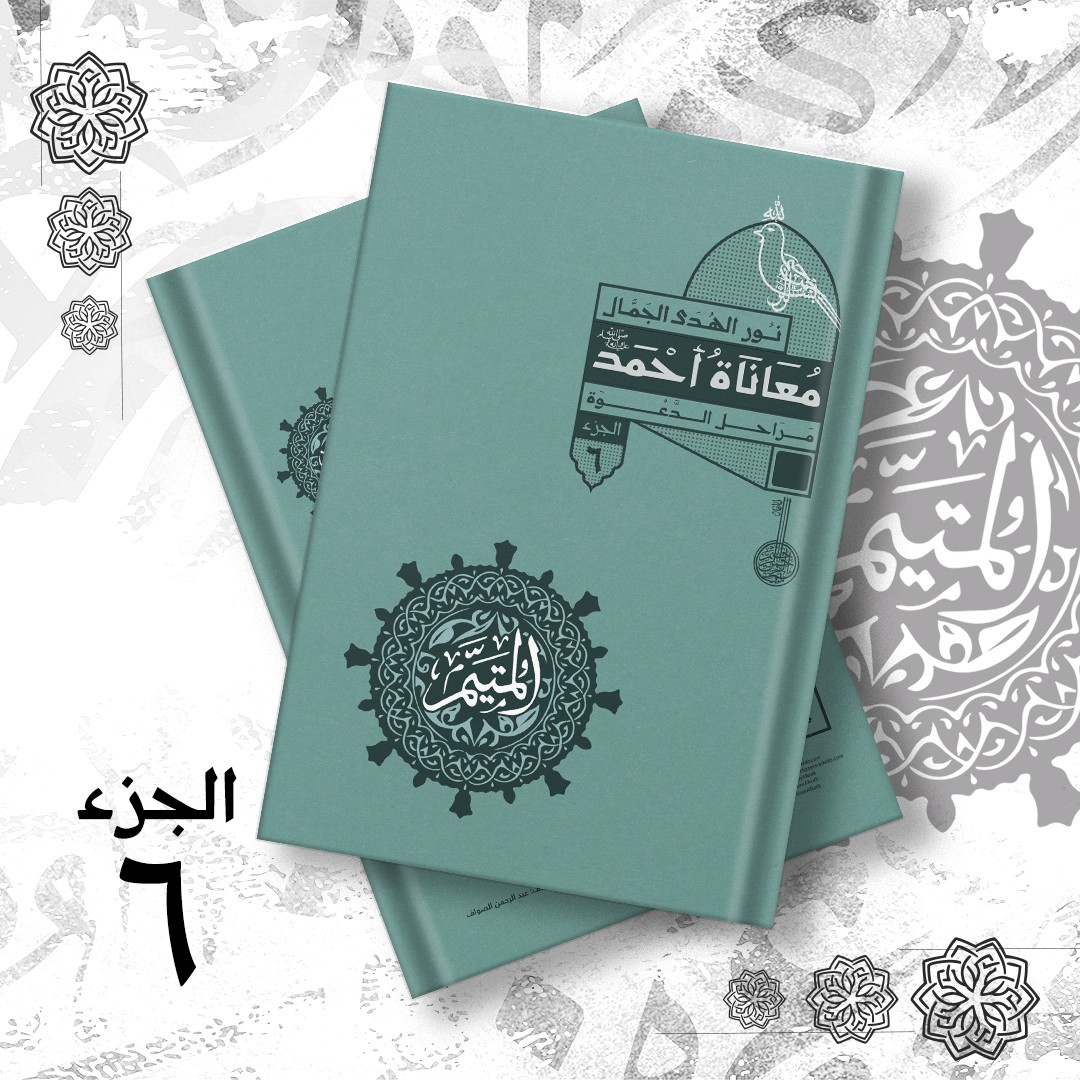
Sale 20%
Al-Mutayam 6 - Ahmed’s suffering
In the previous part, we responded to some objections related to certain issues, such as the incident of Bi'r Ma'una, the story of the adulterous monkeys, and the ruling on drinking camel urine. Now, in the sixth part of our book "Al-Mutayyam," we will transition to discussing the stages through which the Islamic call passed in its early stages, including the covert stage, during which the first group of companions of the Prophet Muhammad ﷺ entered into Islam. Among them were Abu Bakr Al-Siddiq, Umar ibn Al-Khattab, Uthman ibn Affan, and others who were fortunate to embrace this blessed call early on.
We will then talk about the beginning of the second stage of the call, which is the stage of public proclamation, and how this stage led to clear confrontations. We will discuss two dangerous matters that hinder a person from accepting the truth: blind imitation and ingratitude for blessings.
Continuing our discussion, we will address another stage in the progression of the Islamic call, namely the stage of persecution. We will divide this stage into twenty-six snapshots, each reflecting the extent of the physical and psychological harm endured by the Prophet Muhammad ﷺ and his believers. The leaders of disbelief among the Quraysh did not hesitate to inflict every kind of harm upon the Messenger of Allah ﷺ and his followers in order to deter them from their faith and divert them from this creed, the light of which had settled in the depths of their hearts.
Price: 168.00EGP 210.00EGP
Read more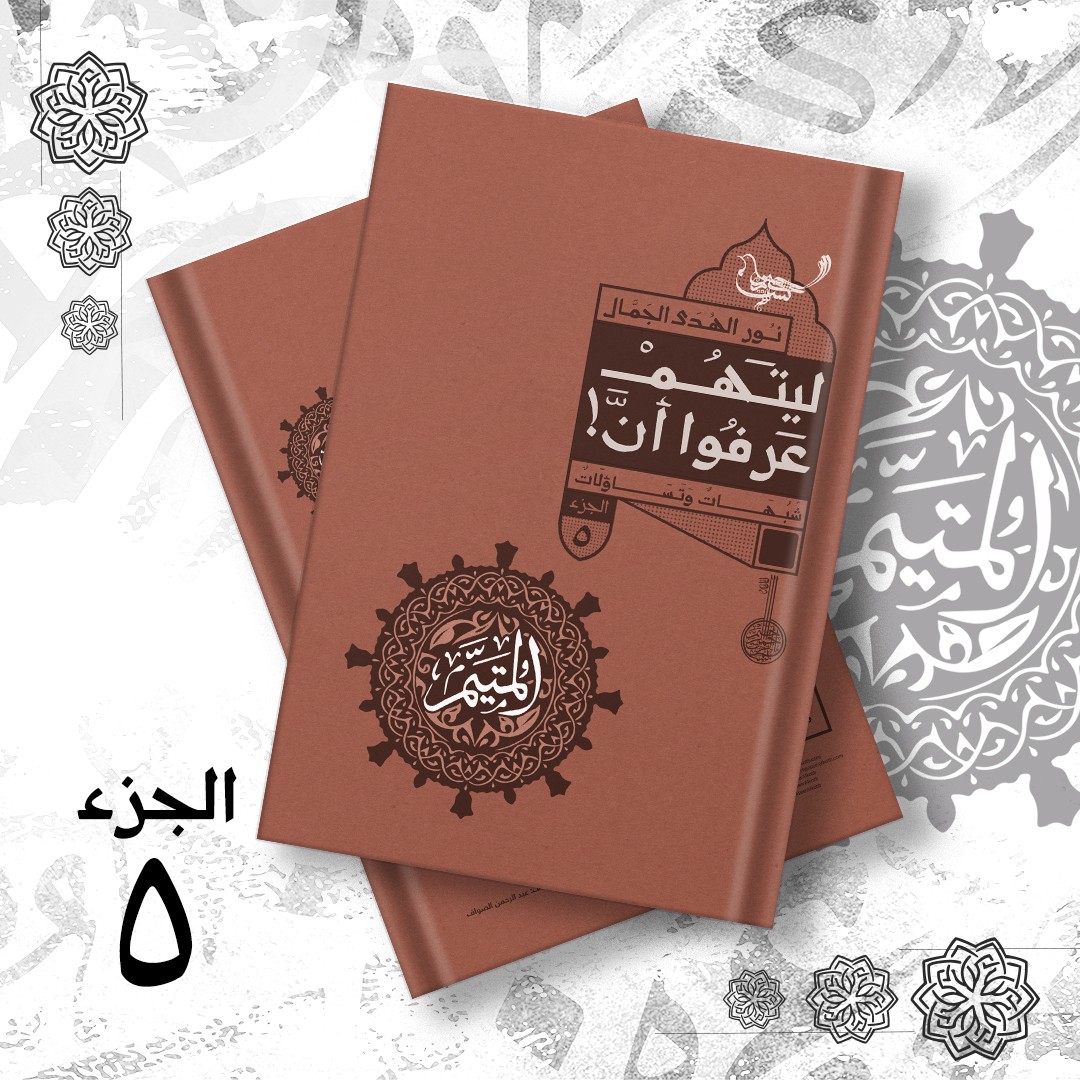
Sale 20%
Al-Mutayam 5 - I wish they knew that!
We discussed the issue of the Prophet Muhammad's multiple marriages, which has been subject to much controversy, with skeptics attempting to use it as a point of criticism against his prophethood. We then mentioned the reasons why the Prophet Muhammad ﷺ married multiple wives. Then, we talked about the Prophet's wives whom he consummated marriage with, addressing some of the objections raised about his marriages to certain women. We concluded this part by mentioning the women to whom the Prophet ﷺ was engaged but did not consummate marriage with, as well as those who offered themselves to him ﷺ. Then, we addressed some issues related to women, such as: the capture of women during war, the distinction between free women and slaves, the benefits resulting from capturing women during war, the story of the hijab, and the verse about beating women. Finally, we responded to some objections raised by skeptics about the Sunnah of the Prophet Muhammad ﷺ, such as: the incident of Bi'r Ma'una, the story of the adulterous monkeys, the alleged lack of knowledge of the Prophet ﷺ, his urine, and the urine of camels.
Price: 224.00EGP 280.00EGP
Read more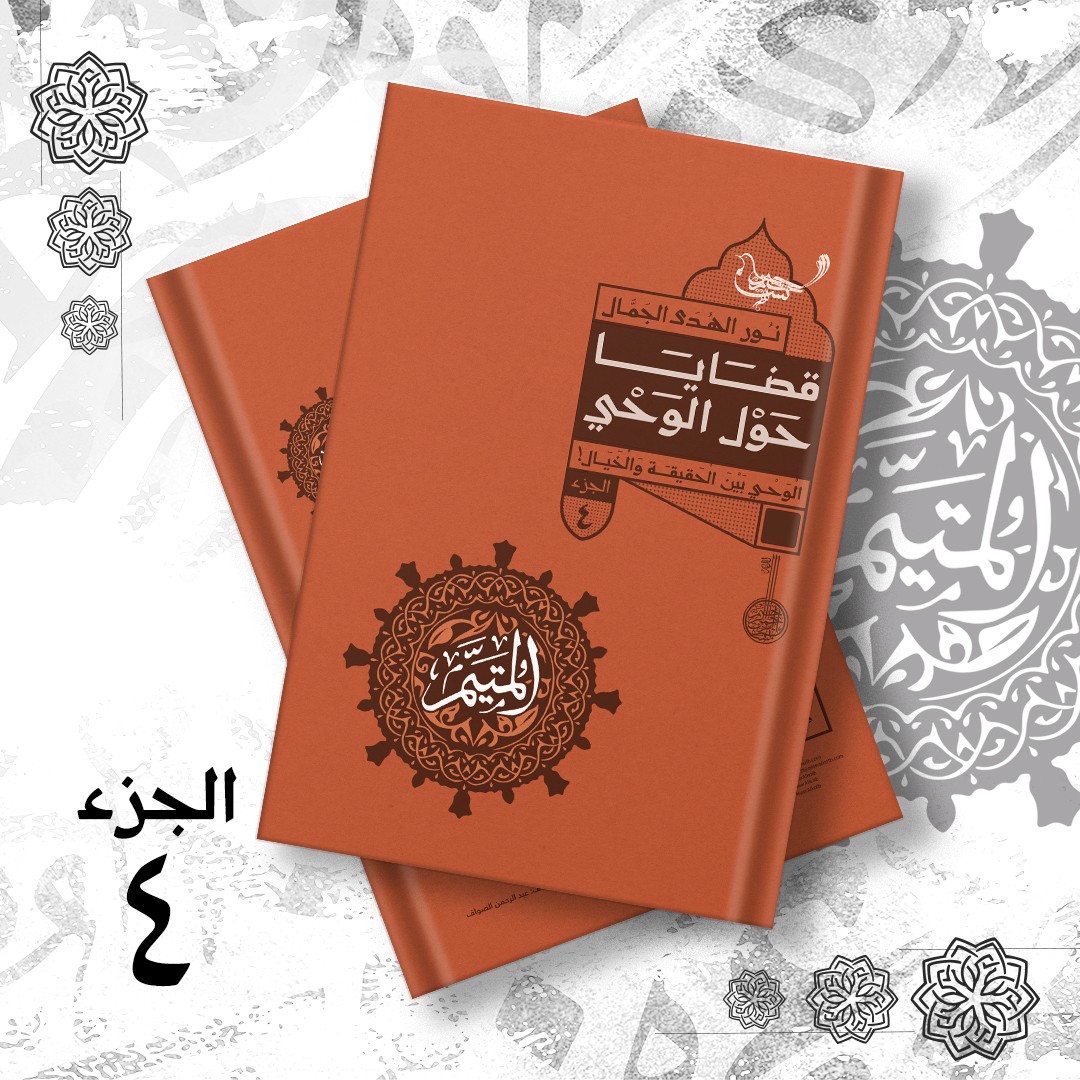
Sale 20%
Al-Mutayam4 - Issues about revelation
We began discussing in the third part of the book "Al-Mutayyam" the issue of revelation, where we addressed some important points related to this topic, such as: the nature of revelation, whether the personality of the Prophet Muhammad ﷺ was imaginary or real, and what the Torah and the Gospel said about him ﷺ. Then we answered a question that imposes itself: Why do they deny him ﷺ while the Quran records his existence, and history testifies to him ﷺ? And before you is the fourth part of this book, where we continue discussing some points related to the issue of revelation. We start by discussing the centrality of humanity upon which the Western theory is based, and the extent of its clash with the call of the Prophet Muhammad ﷺ regarding the reality of the centrality of the love of Allah and His worship in the life of humanity. Then we talk about the independence of Islamic legislation, and we answer some questions that are frequently asked when discussing revelation and its nature, such as: Was the Prophet ﷺ influenced by the previous Hanif? Is it possible that Bahira the monk was a fictional character? What is the Quran's stance on other beliefs? What is the reality of the disconnected letters in the Quran, and did the Prophet ﷺ take them from previous scriptures? And we answer this important question: Whose speech is the Quran? Then we continue our blessed journey, and we continue talking about the issue of revelation, starting our discussion about the forms and types of revelation, then we answer some questions related to this matter, such as: Was revelation a type of epilepsy, or was its source Satan? Was revelation magic, or were they just dreams that the Prophet ﷺ saw? Then we conclude the discussion on the issue of revelation by talking about Ummayah, the mother of the Prophet ﷺ, and we answer important questions related to this matter: Does the illiteracy of a person imply ignorance? Does the fact that the Prophet ﷺ was illiterate mean that the scribes of revelation deceived him ﷺ? Was the Messenger of Allah ﷺ just a righteous man, or was he a social reformer? Then comes the conclusion with which we end the discussion on everything related to the issue of revelation.
Price: 232.00EGP 290.00EGP
Read more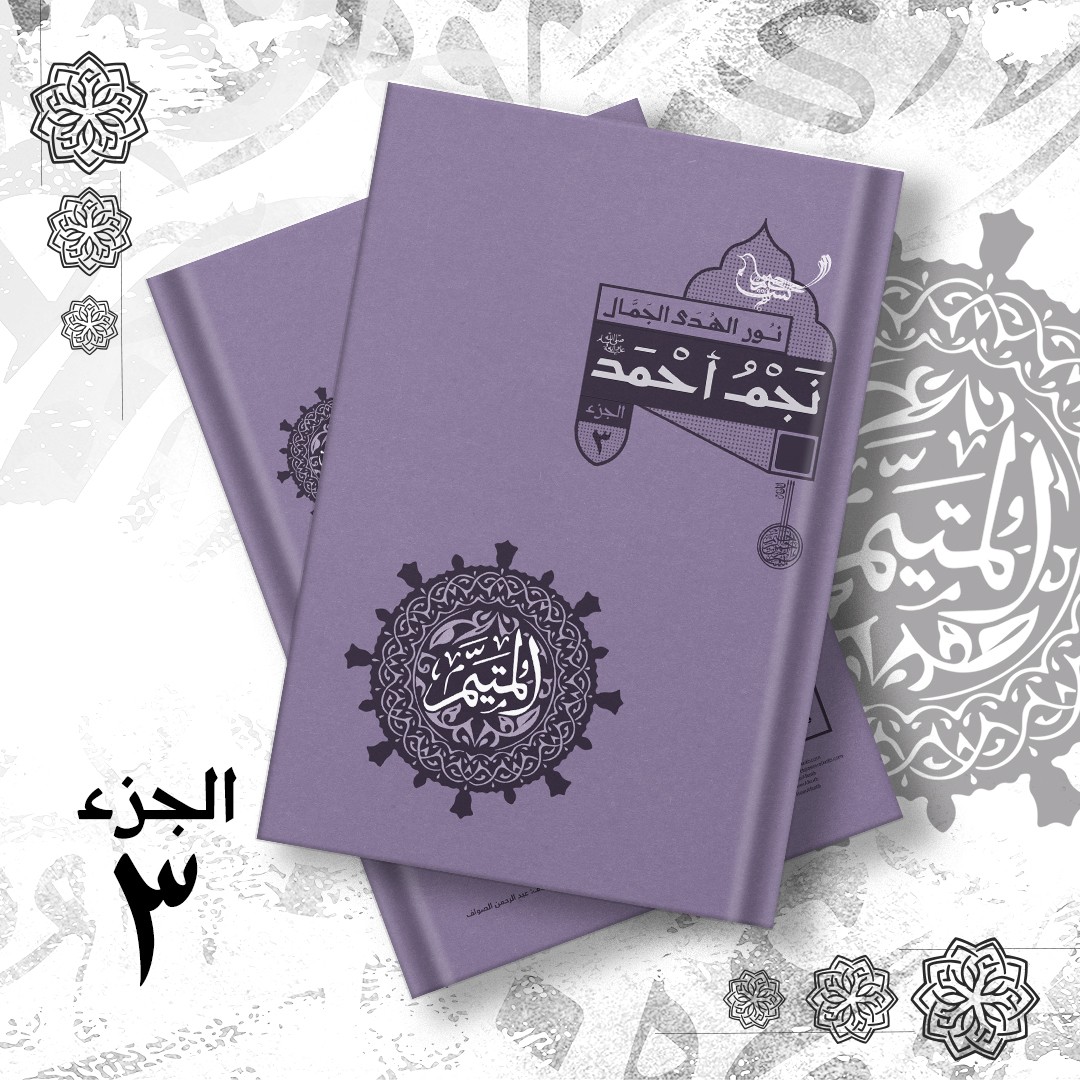
Sale 20%
Al-Mutayam 3 - Najm Ahmed
In the previous section, we talked about the history of the ancient house that Allah permitted to be raised for worship, and we also talked about Judaism and Christianity in the lands of the Arabs, and how these two religions entered these lands to ignite conflict between them. We clarified the extent of the chaos in which the Arabs lived before Islam, and how circumstances required the savior who raises the banner of truth and reconciles the hearts of people to him. And here is the third part of the book "Al-Mutayyam" where we live with the birth of the Prophet of guidance and the best of mankind, our master Muhammad ibn Abdullah ﷺ. We will review the environment in which the Prophet ﷺ was born, its roots, and the environment in which he grew up, to see how the vision seen by one of the kings of Yemen was realized and narrated to Abdul Muttalib regarding the nearness of the Prophet Muhammad's mission ﷺ. We will also talk about a very important issue; namely the issue of revelation, and we will pause briefly with this issue to review together some important points in it, and we will start these points in this part by talking about the nature of revelation, and about the personality of the Prophet ﷺ, whether it was an imaginary or a real personality, and what the Torah and the Gospel said about him ﷺ. Then we will conclude this part by answering a question that imposes itself: Why do they deny him ﷺ while the Quran records his existence, and history testifies to him ﷺ?
Price: 116.00EGP 145.00EGP
Read more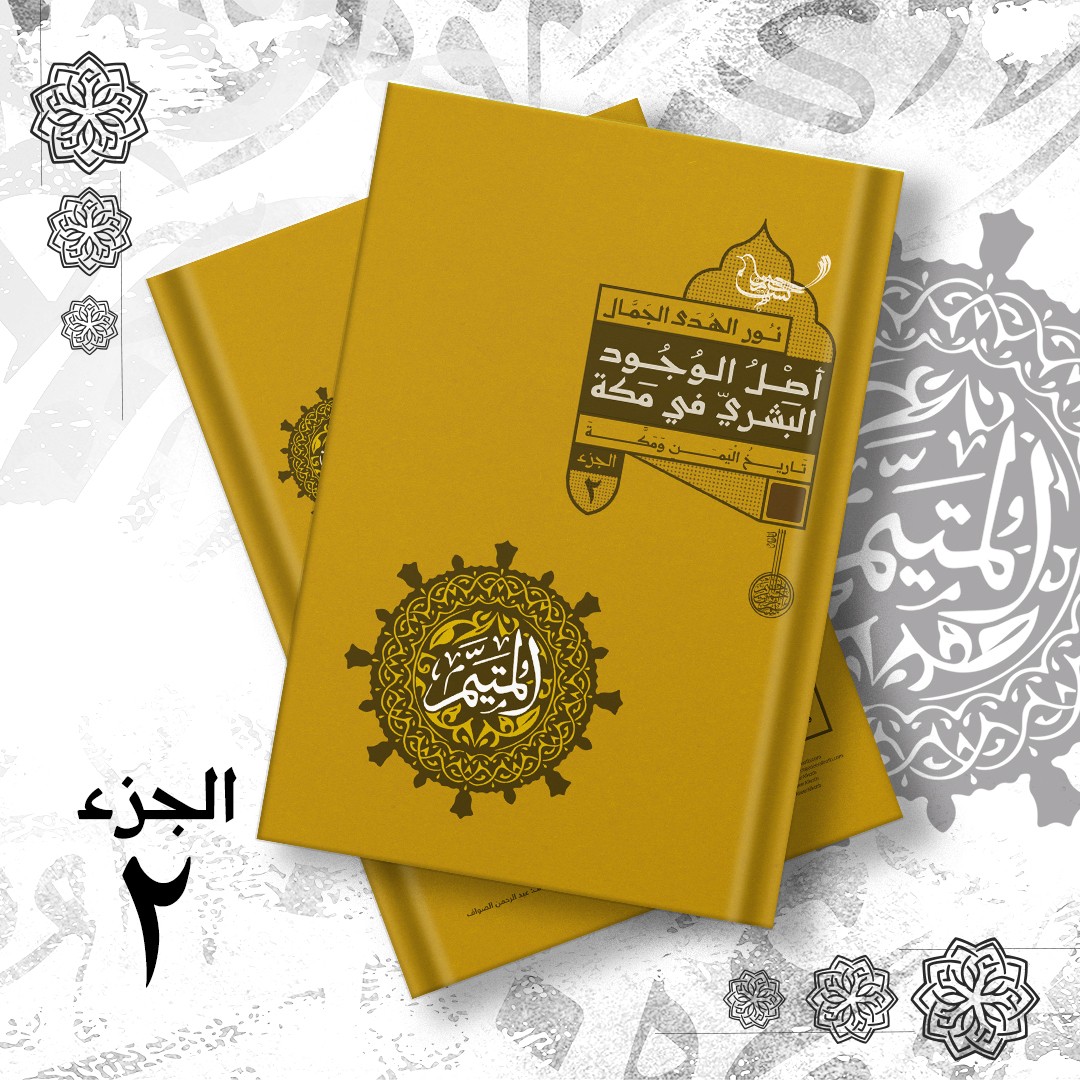
Sale 20%
Al-Mutayam 2 - The origin of human presence in Mecca
"In the first part of the book 'Al-Mutayyam', we talked about the story of creation and the purpose for which we were created, and we answered many of the doubts related to the issue of human guidance and choice: Why doesn’t Allah admit all of us to Paradise, and why does Allah create things and then forbid them to us, and other doubts related to this issue. Then we talked about the divisions of the Arabs (Al-Aaribah, Al-Mustaaribah, and Al-Ba’idah), and we mentioned why we explain these classifications? And what is the impact of knowing these divisions on the study of the blessed biography. And in front of you – O reader - is the second part of the book 'Al-Mutayyam', in which we will talk about the history of Yemen; this ancient history which is one of the pillars of this blessed biography. We will talk about the kings who ruled Yemen in ancient times, and you will see that everyone used to kill each other for the sake of ruling, and you will also see how Allah protected the Kaaba from the hand of the Abyssinian commander Abraha; so that you can form an image in your mind about the conditions of the Sacred House at that time. You will understand and realize that Allah was preparing this Arabian region for an important matter, that is, the mission of the seal of the prophets, our Messenger Muhammad ﷺ. And we will talk about the history of the ancient house: what is the story of this house? When did human presence begin in Mecca, and other matters related to the history of this blessed area so that you can stand on the first step that ascends to the pulpit of light, the pulpit of the Messenger of Allah ﷺ, so that you stand from the highest mountain of certainty with a wise eye seeing with a shining vision how Islam originated, and how all the difficulties and obstacles were overcome."
Price: 152.00EGP 190.00EGP
Read more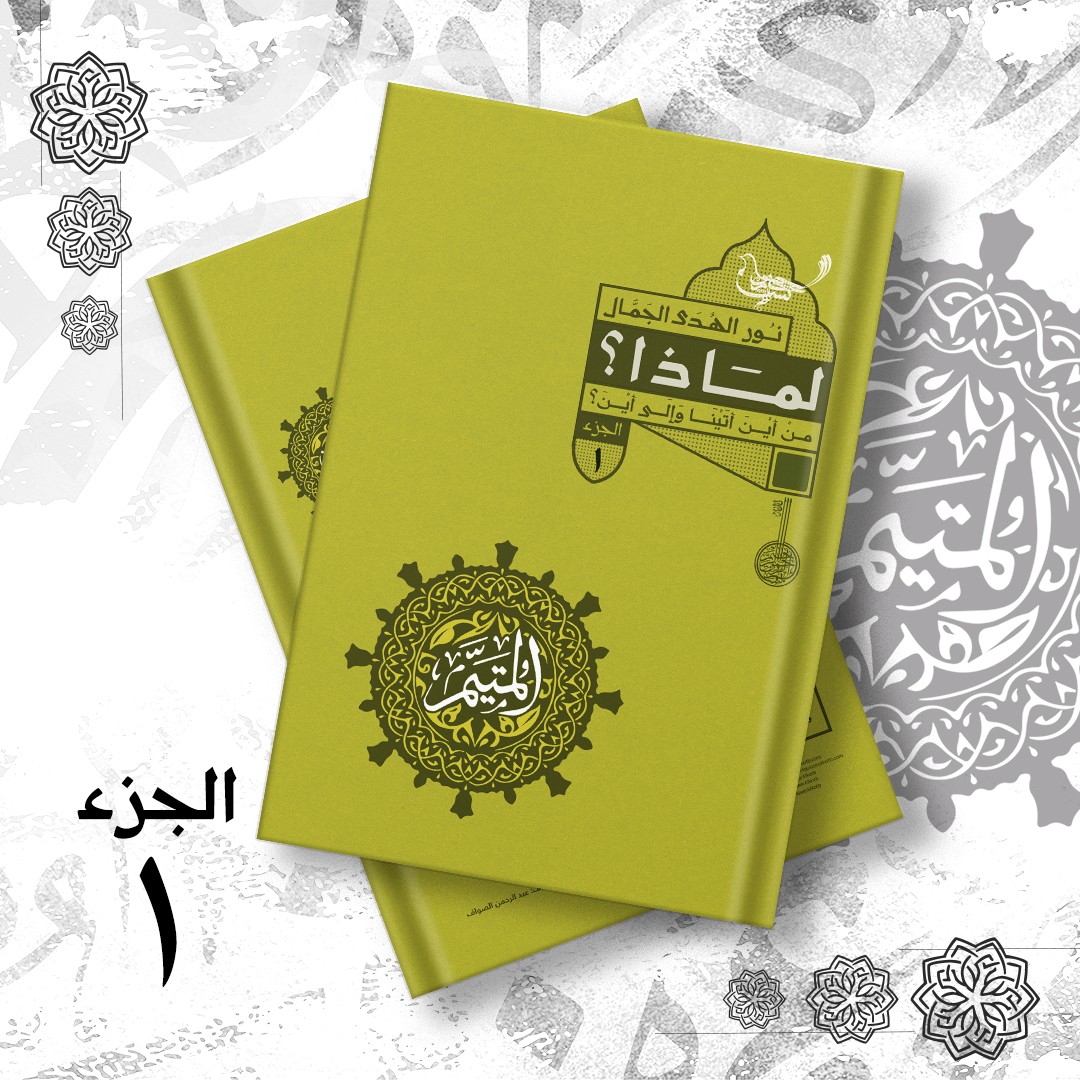
Sale 20%
Al-Mutayam1- Why, where did we come from and where?
"Here it is – O my friend – the first part of the book "Al-Mutayyam", which we will begin with the story of creation, and through it, we will answer many of the questions related to the issue of human guidance and choice, why did God create us, what is the world of atoms, why doesn’t God admit all of us to Paradise, was Adam in Paradise before descending to Earth, why does God create things and then forbid them to us, who is our real enemy, and how can Adam be infallible while he disobeyed God. Why does evil, injustice, trials, disabilities, death, and the loss of loved ones exist? Does approaching God lead to more trials? Why are there constant warnings and threats in the Quran, why doesn’t God guide all of us, can knowledge create like God's creation? What is the difference between creed and Sharia, are religions different, and who is the first caller to faith? Then we will talk about the Arab tribes in Mecca, why do we explain these classifications, how did the Arabs live before Islam, and how did circumstances require the savior who raises the banner of truth and reconciles the hearts of people to him."